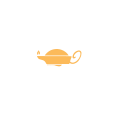Sharon Coombes RN CNS
Sharon works as a Clinical Nurse Specialist in Whakatane Emergency Department. She trained in the UK and has worked across a variety of care environments from primary care to supporting the implementation of the National Service Framework for CHD at the Department of Health. Sharon moved with her family to New Zealand in 2004 to return to her first love emergency nursing. She has undertaken a variety of roles and projects in the emergency department; including clinical nurse educator, was part of the ED project team in building the model of care and functionality of the new emergency department and hospital. She completed her Master of Nursing with the focus on emergency care and ethics. Her dissertation sought to identify barriers to care focusing on patients who did not wait. As a result, all paediatric did not waits are routinely followed up as a quality indicator. Currently she is building her Nurse Practitioner portfolio in between adventures in the great NZ outdoors.
ABSTRACT
Title: Our Evolution: A rural emergency work force fit for purpose
Exploring our evolution utilising a case study perspective, we hope to share the uniqueness the Nurse Practitioner (NP) paradim (NCNZ 2017) brings to the workforce mix within our rural Emergency Department (ED).
Whakatane has a rural population of approximately 50,000 over a wide geographical area. Statistically the Whakatane ED populations have poorer health outcomes associated with ethnicity and level of deprivation.The DHB Health and Service Profile (2016) identifies EBOP as 52 % Māori and citing the NZ Deprivation index ranks EBOP as a most deprived area. Manifesting in lack of resources and significantly impacting on individual’s and whanau’s health.
ED is the sole provider of after hours health care in Whakatane. Increasing service pressures are reflected in higher volumes presenting to ED with a ballooning afternoon curve and disproportionate paediatric presentations.
Consideration was given to another RMO or SMO, however, their transient nature, constant training pressure, little or no knowledge or connection to the community, availability, cost and perpetuating medical model of care were not conducive to the vision of providing emergency care to our unique population.
Thus, an opportunity evolved to do something very different. Focusing on peak out of hours presentations, Dr Terri McBride FACEM, championed a vision and belief in the NP role which enabled us to see all undifferentiated patients and manage the ED component in their care journey. KPIs demonstrate reduced admission and re-admission rates, decreased waiting times and length of stay. In addition have had no patient complaints or refusal to be seen.
Reflecting on our evolution the uniqueness the NP brings to rural ED care workforce is differentiated by our investment in the long term solutions for our department.
Understanding the needs of our population, community structures and barriers to provide care solutions in partnership with our patients. Ensuring connectivity for health. Working collegially across all health and social disciplines and role modelling for medical and nursing colleagues.
References:
Bay of Plenty District Health Board (2016). Bay of Plenty Health and Service Profile 2016. Tauranga: New Zealand
Te Kaunihera Tapuhi o Aotearoa, Nursing Council of New Zealand (2017). Competencies for the nurse practitioner scope of practicie. Nursing Council of New Zealand, Wellington. New Zealand.
 Menu
Menu
